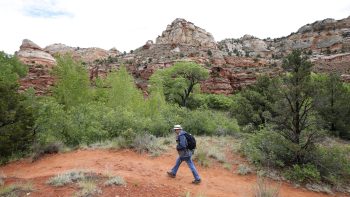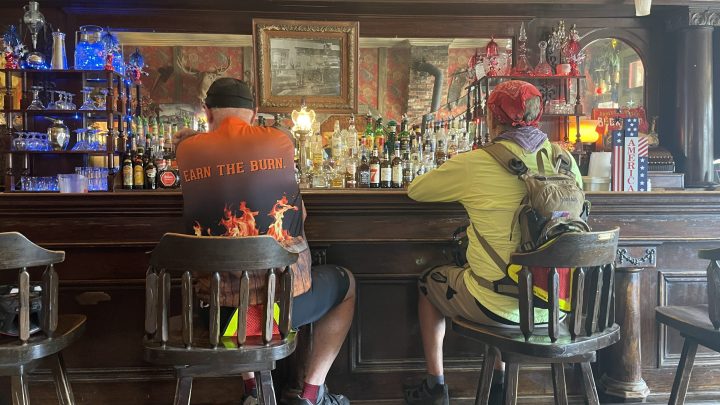
Cyclists and hikers bring life back to an old gold mining town in Wyoming
Cyclists and hikers bring life back to an old gold mining town in Wyoming

Pamela and Tim Fennell, a couple from Indiana, pedaled their tandem bike down a dusty dirt road in Wyoming. It has two seats, two handlebars and two sets of pedals. Bulky bags are strapped all over — carrying everything they need for two months on the road.
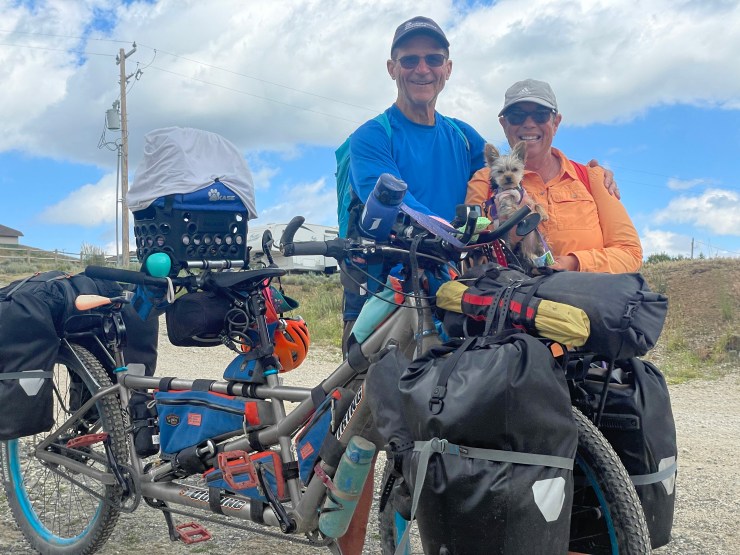
“Yesterday, we rode 78 miles,” Tim said. “This is our longest day,” Pamela added. “And almost 4,000 feet of elevation climb,” Tim chimed in.
The Fennells are pedaling a rugged route from Canada to Mexico along the Continental Divide. There is also a similar hiking route, and they attract thousands of hikers and cyclists every summer, with more attempting it each year. This is a part of the growing outdoor recreation industry in the United States, which contributes about $454 billion to the nation’s gross domestic product, and some of that money is being spent by these very cyclists and hikers in rural towns along the Continental Divide route.
“So, this is your last stop for real food, to fill up with water to kind of get yourself geared up,” Pamela said.
The Fennells took a break in Atlantic City, Wyoming, not to be confused with the mecca out east. Rather, this Atlantic City is an old gold mining town, with no paved roads and a total of five businesses. The Fennells expected to spend about $150 here on laundry, showers, a campsite and most importantly, calories.
“We both had bacon cheeseburgers and fries,” Pamela said. “But we already had an ice cream.”
There were dozens of other cyclists and hikers in town, also fueling up and spending money, including at the legendary Atlantic City Mercantile. It is an old saloon decorated like a Western movie and has seen the likes of Butch Cassidy and even Robert Redford.
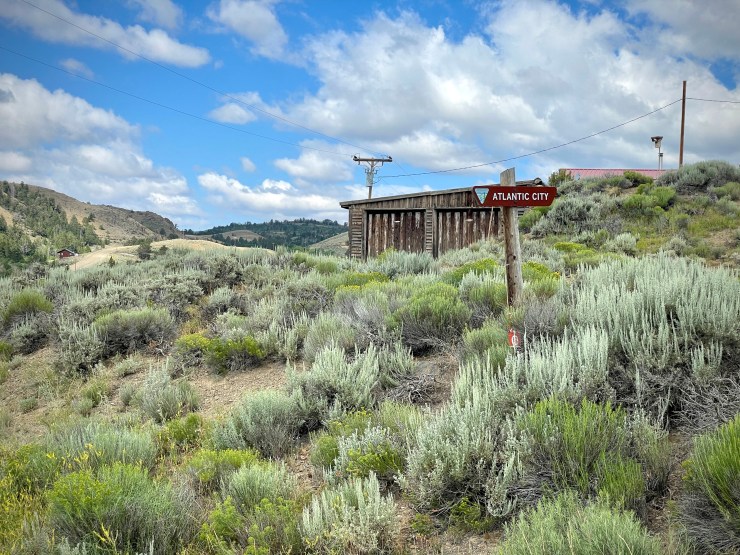
Garry Connett, a cyclist from Minnesota, stood against the old battered, wooden bar. One can tell he is not local, in his skin-tight spandex shorts and clompy cycling shoes.
“I wanted to see the place,” he said. “I’ve always heard about it, so I was really looking forward to just seeing this.”
One hiker drank a beer at the bar. There were a few tables of cyclists eating burgers. Connett said this town is a must-stop for people making this trip.
“All the bikers stop here,” he said. “They don’t bike by it, they stop here.”
Connett spent about $10 on chips and chocolate milk and hit the road.
This is a newer scene in Atlantic City. For the last 50 years or so, the community has teetered on the edge of becoming a ghost town, with a population of about 57.
“Some days if two of us locals walk in, they’ve had a busy day,” said Susan Layman, a long-time resident who used to work at the Mercantile. “If you made five bucks that day, you made a lot of money.”
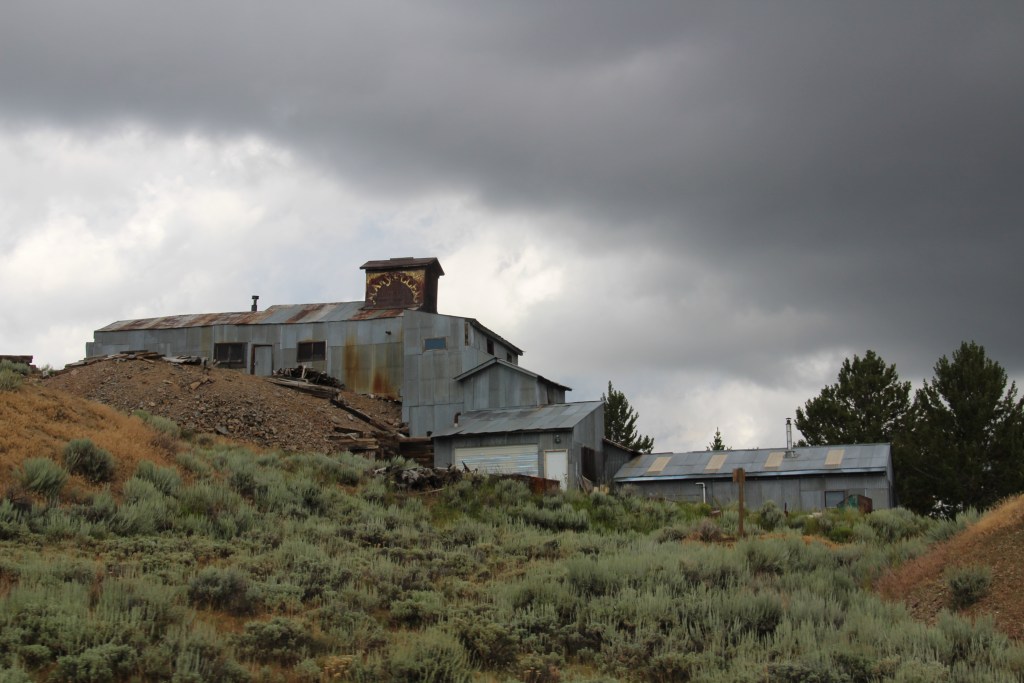
The area had gone through several gold mining booms starting in the late 1800s. Now, all that is left of that era are some tattered wooden mine buildings on the outskirts of town.
But Layman said the thousands of hikers and cyclists who started coming in the last decade are like another boom.
“I suppose it’s going to be driven by people’s finances,” she said. “But I think it’s going to stay for a while, and it’s good for these businesses.”
Businesses like the local campground. Owner Lucy Milham sat on her front porch. To her left is a wooden sign engraved with a pistol and the words “We don’t dial 911” — a nod to the fact there is no police department here.
This time of year is Milham’s busy season.
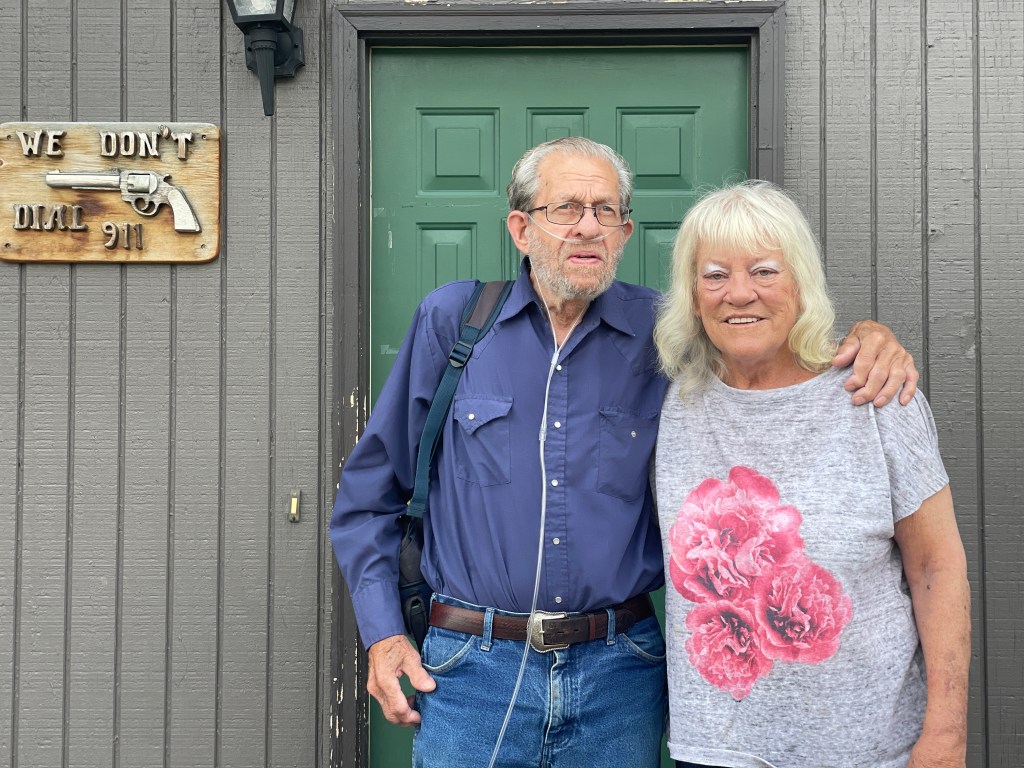
“We’re basically only open June, July, August, September. Because the weather’s, you know, you never know,” Milham said. “We had 137 inches of snow last year.”
But Milham said it is enough to pay her bills. She added that campers also love that there is a laundromat, a vending machine and showers.
“There’s no place out there on the trail to take a shower,” she said. “So that’s pretty much what they want. They don’t even set their tents up. They go right to the shower.”
Milham said she is adding more campsites to meet the demand brought by outdoor recreation, and leaving gold mining in the dust.
There’s a lot happening in the world. Through it all, Marketplace is here for you.
You rely on Marketplace to break down the world’s events and tell you how it affects you in a fact-based, approachable way. We rely on your financial support to keep making that possible.
Your donation today powers the independent journalism that you rely on. For just $5/month, you can help sustain Marketplace so we can keep reporting on the things that matter to you.



